Kyoto FDer School sponsored by the University Consortium Kyoto.
In order to train faculty and staff who will become leaders in FD activities at the member schools of the University Consortium Kyoto, the seminar is mainly aimed at faculty and staff who are FD committee members and FD administrative staff at each university and junior college. We look forward to your participation.
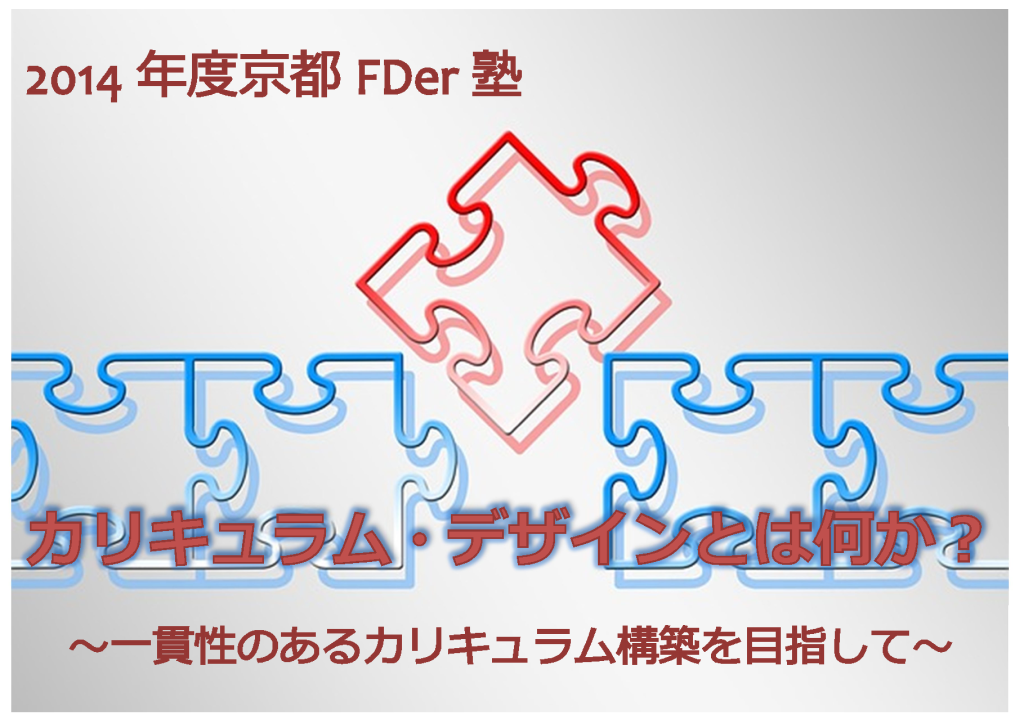
2014 Kyoto FDer School What is Curriculum Design?
~Aiming to build a consistent curriculum~
Outline of the event
| Date | Saturday, January 24, 2015 13:00~17:00 (Doors open at 12:30) |
| Venue | Campus Plaza Kyoto, 5th Floor, Lecture Room 1 |
| Target | University faculty, staff, and the general public who are interested in FD |
| Occupancy | 150 (first-come, first-served basis) |
| Participation Fee | For members of member schools: Free Non-members: ¥1,000 (Please pay at the reception on the day) |
Lecture Outline
| theme | What is Curriculum Design? ~Aiming for a Consistent Curriculum Design~ |
||||
| Overview | In recent years, Japan’s higher education has been required to shift to an organizational and systematic curriculum based on diploma policies and curriculum policies. Although each university has been tackling various issues through educational reform and FD, it is said that society is still dissatisfied with the current progress in improving undergraduate education. The most important aspect of undergraduate education as a program is policy-based curriculum design. How can we shift from the traditional teacher-centered curriculum to an organized and systematic curriculum? Also, how should specialized education and so-called general education be positioned in the curriculum offered at each university, and how should they be related? Based on this awareness of the problem, we will share the process and content of the discussion during this period from the precedents of universities that have specifically worked on curriculum reform, and we will provide an opportunity for participants to obtain hints on the optimal decision-making process and problem solving at their home universities. |
||||
| Keynote Speeches |
“Curriculum Formation for Realizing DP” |
||||
| Case Studies | Kenji Furuya (Professor, Institute of Basic Education, Kyushu University) | ||||
| Nobuko Kawahara (Professor, Faculty of Nursing, Kyoto Tachibana University) | |||||
| Shigeo Kikuchi (Dean, Professor, Tamagawa University) | |||||
| Chairperson | Takashi Yasuoka (Professor, Institute for Educational Development, Ritsumeikan University) | ||||
Information flyer [2014 FDer cram school information flyer]
How to apply: E-mail application
Subject: “0124 Kyoto FDer Juku Application”
Text: (1) Name (2) University affiliation (3) Faculty, staff, general (4) E-mail address
Please send an e-mail to fdrd■consortium.or.jp with the above contents. (Please replace ■ with @) We will send you a confirmation email after receiving your application.
About Kyoto FDer School

Inquiries
University Consortium Kyoto FD Project
TEL 075-353-9163 FAX 075-353-9101
〒600-8216 Shimogyo-ku, Kyoto-shi, Nishitoin-dori, Shiokoji, Shimo-ku, Kyoto, Campus Plaza Kyoto
* Reception hours: Tuesday ~ Saturday 9:00 ~ 17:00 (excluding year-end and New Year holidays)














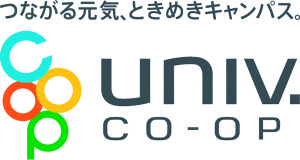
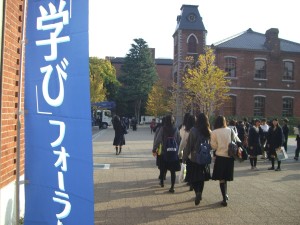
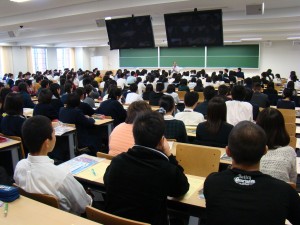 Mock lecture
Mock lecture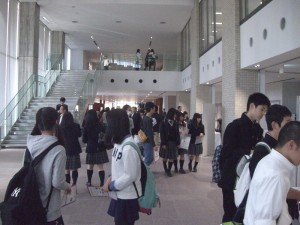
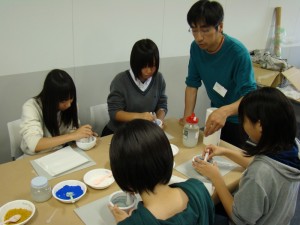 Hands-on course
Hands-on course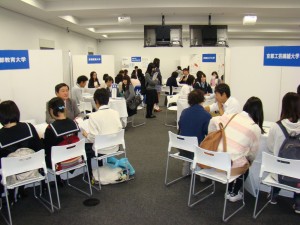
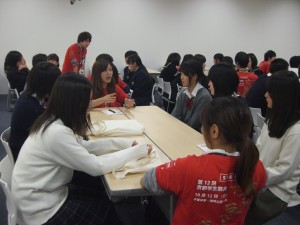 talk with university students at each university booth
talk with university students at each university booth
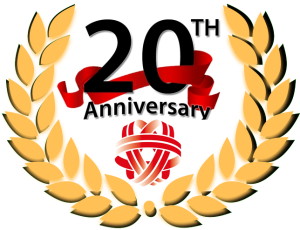

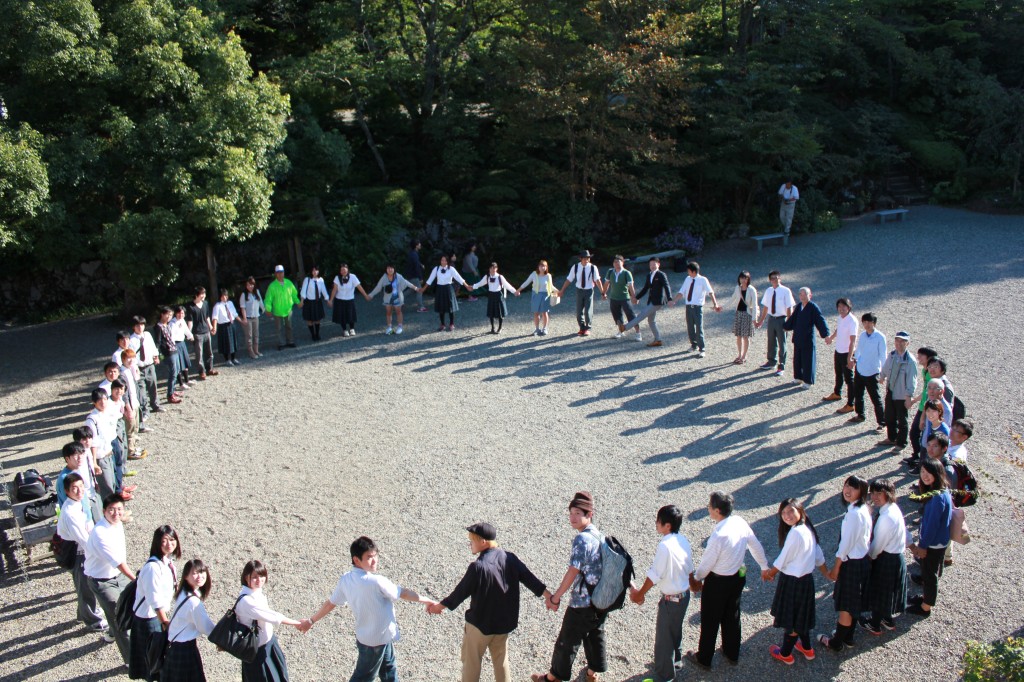
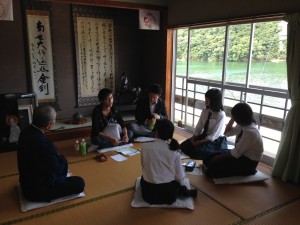
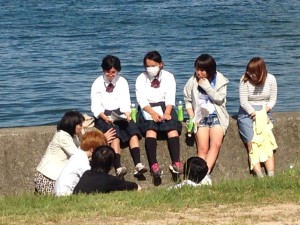
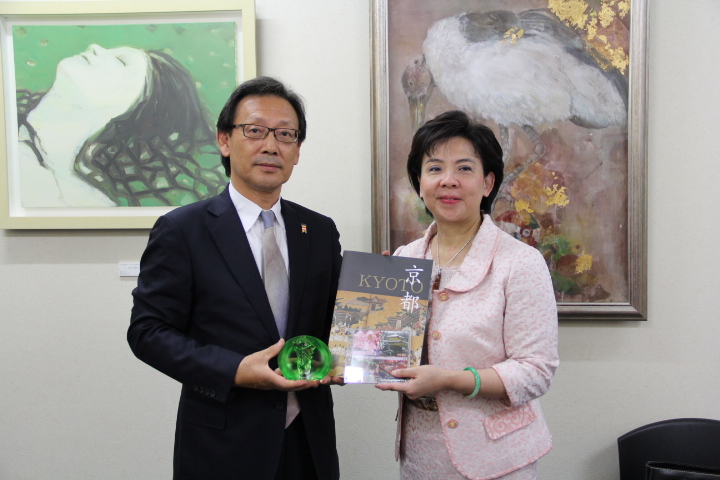
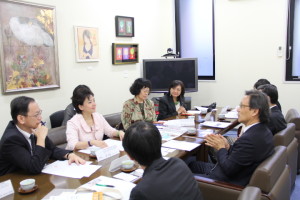
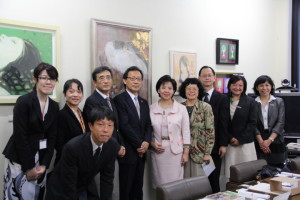

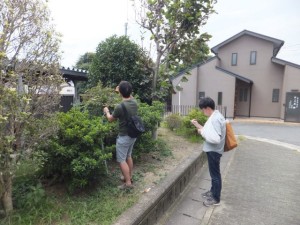
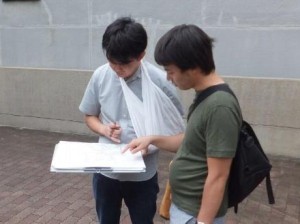
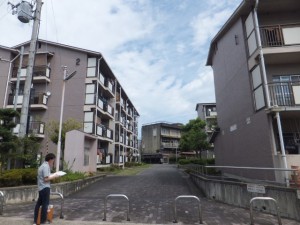
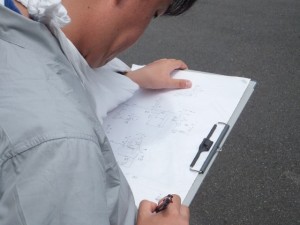
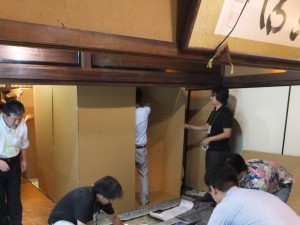
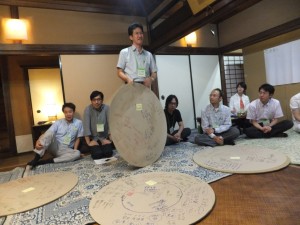
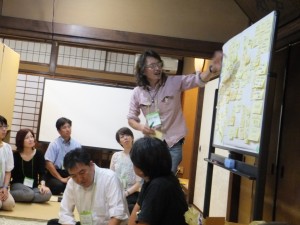
 University entrance examinations are deeply linked to the school system and social structure of the country. In Japan, the premise of the academic achievement test is that a nationwide common educational curriculum has been established, and it is obligatory that the exam questions be first published and that they be published after the fact. However, these are also things that are unique to Japan from a global perspective. In the current reform of entrance examinations, the implementation of multiple common examinations, graded evaluations, the introduction of IRT (Item Response Theory), and the use of computers are also on the table for discussion. I would like to consider the realistic possibility of a “achievement test (tentative name)” including such issues.
University entrance examinations are deeply linked to the school system and social structure of the country. In Japan, the premise of the academic achievement test is that a nationwide common educational curriculum has been established, and it is obligatory that the exam questions be first published and that they be published after the fact. However, these are also things that are unique to Japan from a global perspective. In the current reform of entrance examinations, the implementation of multiple common examinations, graded evaluations, the introduction of IRT (Item Response Theory), and the use of computers are also on the table for discussion. I would like to consider the realistic possibility of a “achievement test (tentative name)” including such issues.

